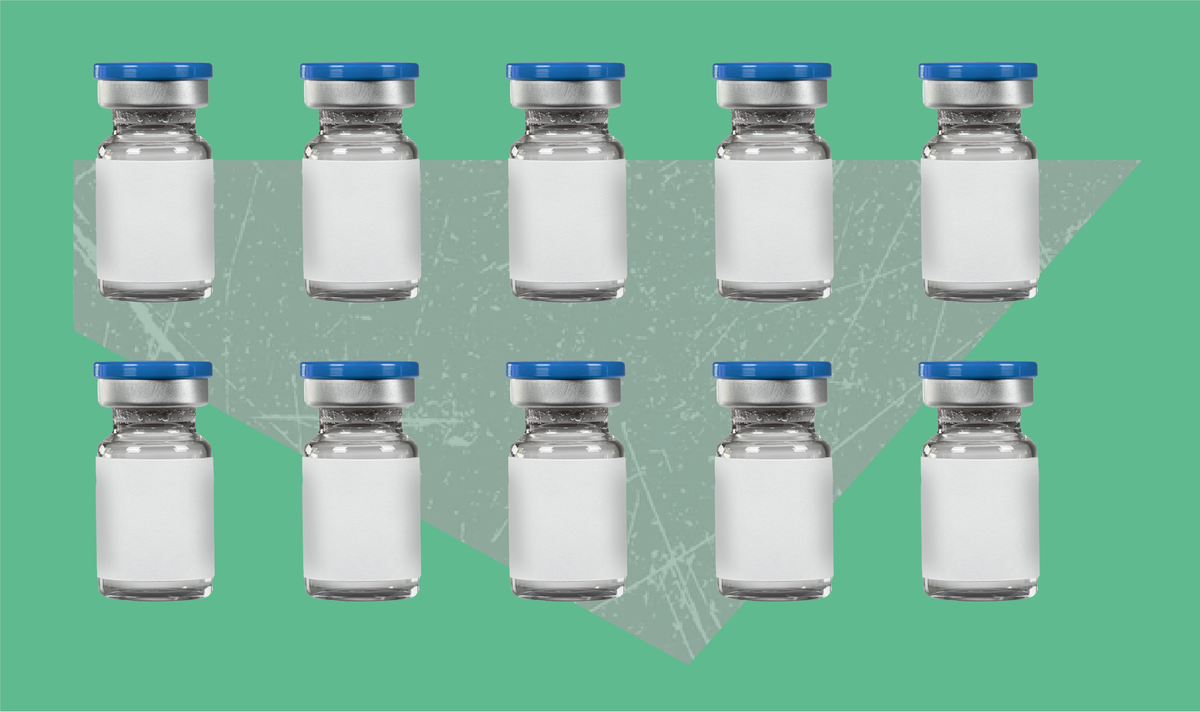Podcast interview launches debates about polio vaccines
This week, online vaccine conversations discussed alleged vaccine-related deaths and how global funding cuts may impact vaccine access worldwide.

This week, online vaccine conversations discussed alleged vaccine-related deaths and how global funding cuts may impact vaccine access worldwide.
This week, a viral podcast clip and anecdotes shared on social media prompted conversations about the safety and importance of childhood vaccines. On March 26, an anti-vaccine author promoted many disproven conspiracy theories about the origins of polio and the safety of the polio vaccine, causing some social media users to speculate that polio vaccines are unnecessary. Vaccine conspiracists on social media used the story of a child who died shortly after being vaccinated to promote false claims about vaccine safety. Meanwhile, online conversations discussed how global health aid cuts will impact the health of people in the U.S. and worldwide.

Insights brought to you by the reporters and science writers of Public Good News (PGN), a nonprofit newsroom dedicated to improving community health.
What’s trending in vaccine conversation:
In a March 26 podcast interview, a well-known anti-vaccine conspiracy theorist promoted a host of debunked and contradictory myths about polio vaccines. The podcast guest alleged that wild poliovirus is harmless and that a deadly poliovirus that causes paralysis was created in a lab. She also claimed without evidence that polio is not caused by poliovirus but is linked to the use of the pesticide DDT. Finally, she speculated that improved sanitation—not vaccines—is responsible for the global reduction in polio and that the disease was not reduced but was recategorized to conditions like Guillain-Barré syndrome; metal poisoning; untreated syphilis; and hand, foot, and mouth disease. Clips from the interview spread rapidly online worldwide. Although many criticized the claims, including some prominent vaccine skeptics, anti-vaccine accounts expressed support and promoted her other disproven claims.
Several popular anti-vaccine accounts are promoting the story of a young girl who died after allegedly receiving multiple vaccines. These accounts previously shared similar stories of children who were later revealed to have died from other causes, including bacterial meningitis. A physician known for promoting anti-vaccine conspiracy theories used the story to repeat the myth that childhood vaccines are linked to Sudden Infant Death Syndrome. In one post, he uses VAERS data to support the claim, although some commenters noted that the data is of little use if it isn’t compared to SIDS rates in unvaccinated children. Social media users argued that vaccines should only be administered one at a time and that children receive too many vaccines.
Social media users continued to discuss the implications of U.S. federal cuts to international aid and the impact they may have at the state, national, and global levels. Many conversations focused on how the cuts will affect states’ ability to track and prevent infectious diseases, including vaccination campaigns. Some commenters questioned why governments should fund these programs because “you can go to the doctor if you want a vaccine” and argued that vaccines are free or low-cost. The posts appear to misunderstand the government’s role in ensuring vaccines are low-cost and readily accessible for everyone. Several commenters claimed without evidence that vaccines are dangerous and that global immunization programs are designed to harm low-income nations. Others argued that infectious disease outbreaks in other countries aren’t a concern to people in the U.S. Some posts countered this narrative by explaining that disease outbreaks frequently cross borders and that global health funding benefits everyone by preventing and combating disease outbreaks worldwide.
Read the fact checks:
- Science Feedback: Suzanne Humphries repeats debunked claims on vaccines, polio in Joe Rogan interview
- CHOP: Too Many Vaccines? What You Should Know
- News Medical: The impact of ending U.S.-funded global vaccine programs

Recommendations brought to you by the health communication experts behind Infodemiology.com.
Recommendations for public health professionals
Each week the Infodemiology.com team will provide messaging recommendations in response to some of the trending narratives outlined above. These helpful tips can be used when creating content, updating web pages and FAQs, and to inform strategy for messaging about vaccines.
Myths that cast doubt on the importance of routine vaccines and the promotion of unproven vaccine “alternatives” may lead to distrust of life-saving vaccines. The false claim that polio has been renamed periodically resurfaces online. Prebunking messaging may emphasize that some conditions have symptoms that resemble polio symptoms but are distinct diseases with known causes. Debunking messaging may emphasize that polio has never been renamed; it has been nearly eliminated worldwide thanks to polio vaccines. The myth that environmental factors cause polio and other vaccine-preventable diseases has been used to argue against the use of vaccines for decades. Messaging may explain that polio is caused by poliovirus, not by exposure to pesticides or any other chemicals.
The death of any child is tragic. Responding with empathy and acknowledging parents’ concerns about child vaccination is recommended, as is explaining how vaccination helps protect children and their families. Messaging may highlight how vaccine opponents exploit the deaths of children to promote their anti-vaccine messages. Talking points may emphasize that all vaccines go through rigorous safety testing and that no safety concerns are associated with receiving multiple vaccines. Additionally, debunking messaging may explain that there is no link between SIDS and any vaccine. The condition’s exact cause is unknown, but numerous studies have shown that SIDS occurs at the same rate in vaccinated and unvaccinated children and has not increased with higher vaccination rates.
Conversations about global health funding reveal a general distrust of government health initiatives and a misunderstanding of how disease prevention is funded and implemented. Talking points may highlight the impact of global health campaigns and emphasize that many deadly and debilitating diseases can only be prevented through vaccination. Global vaccination efforts save millions of lives and help prevent and combat disease outbreaks worldwide before they have the opportunity to grow into a deadly pandemic.
Interested in recommendations tailored to health care providers? Click here.
